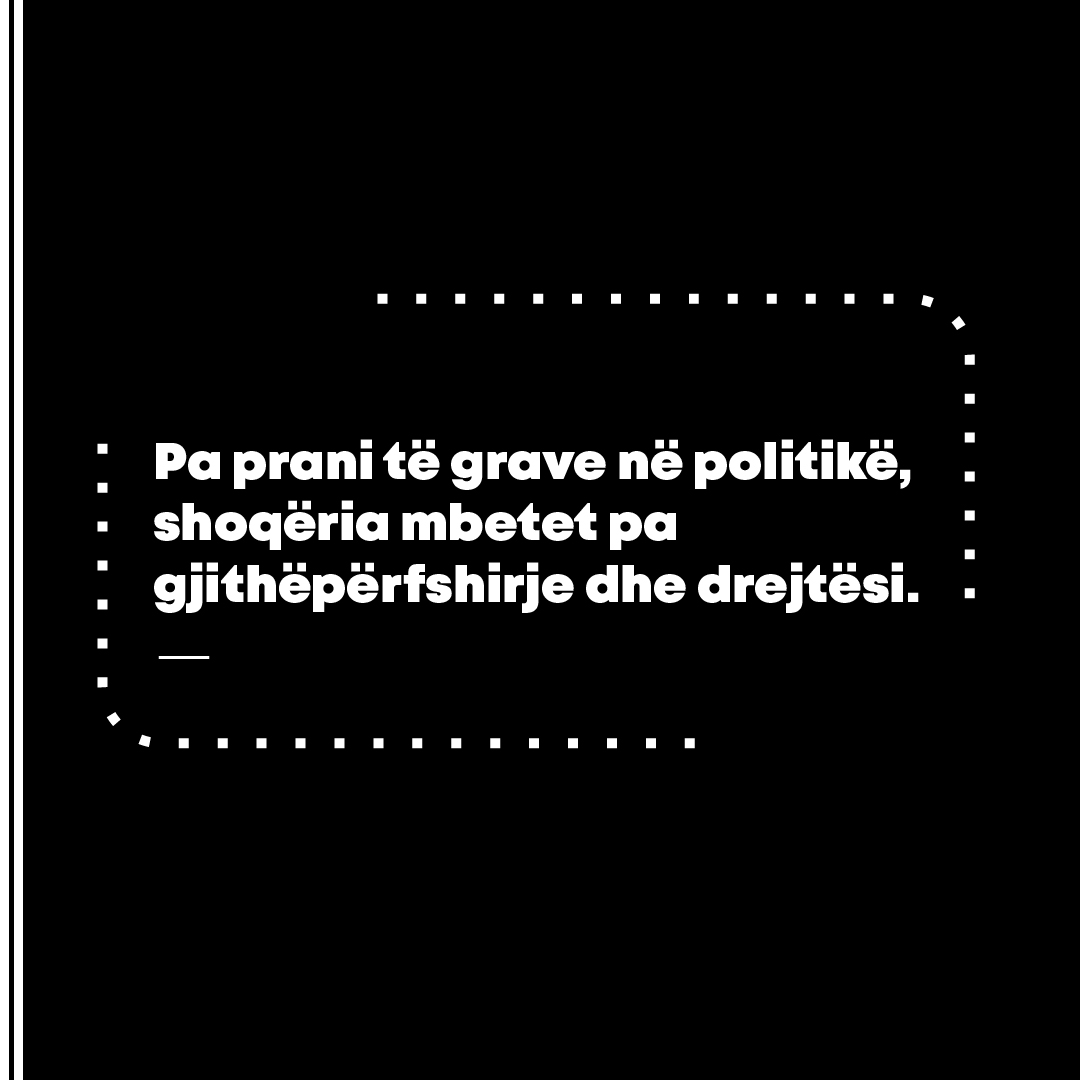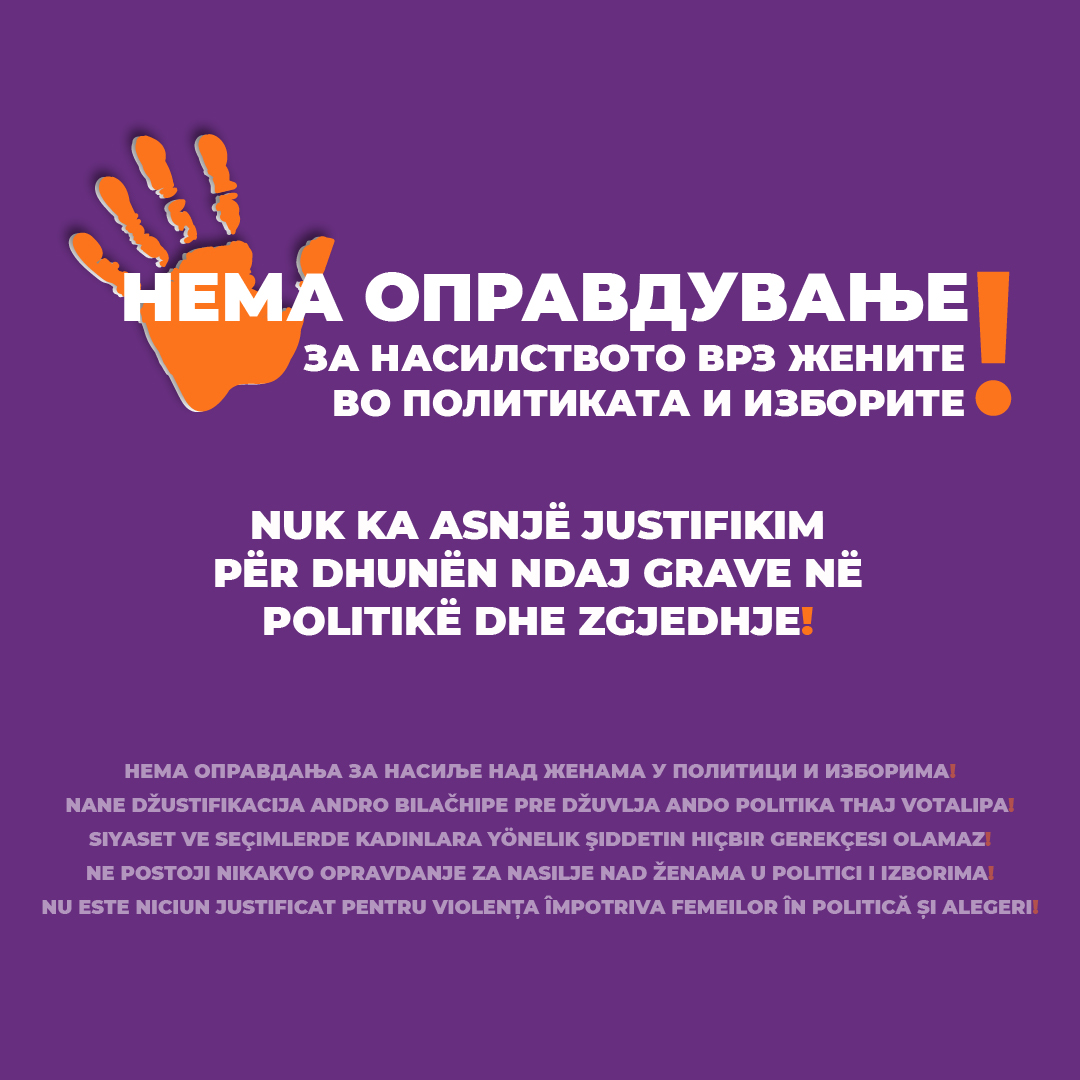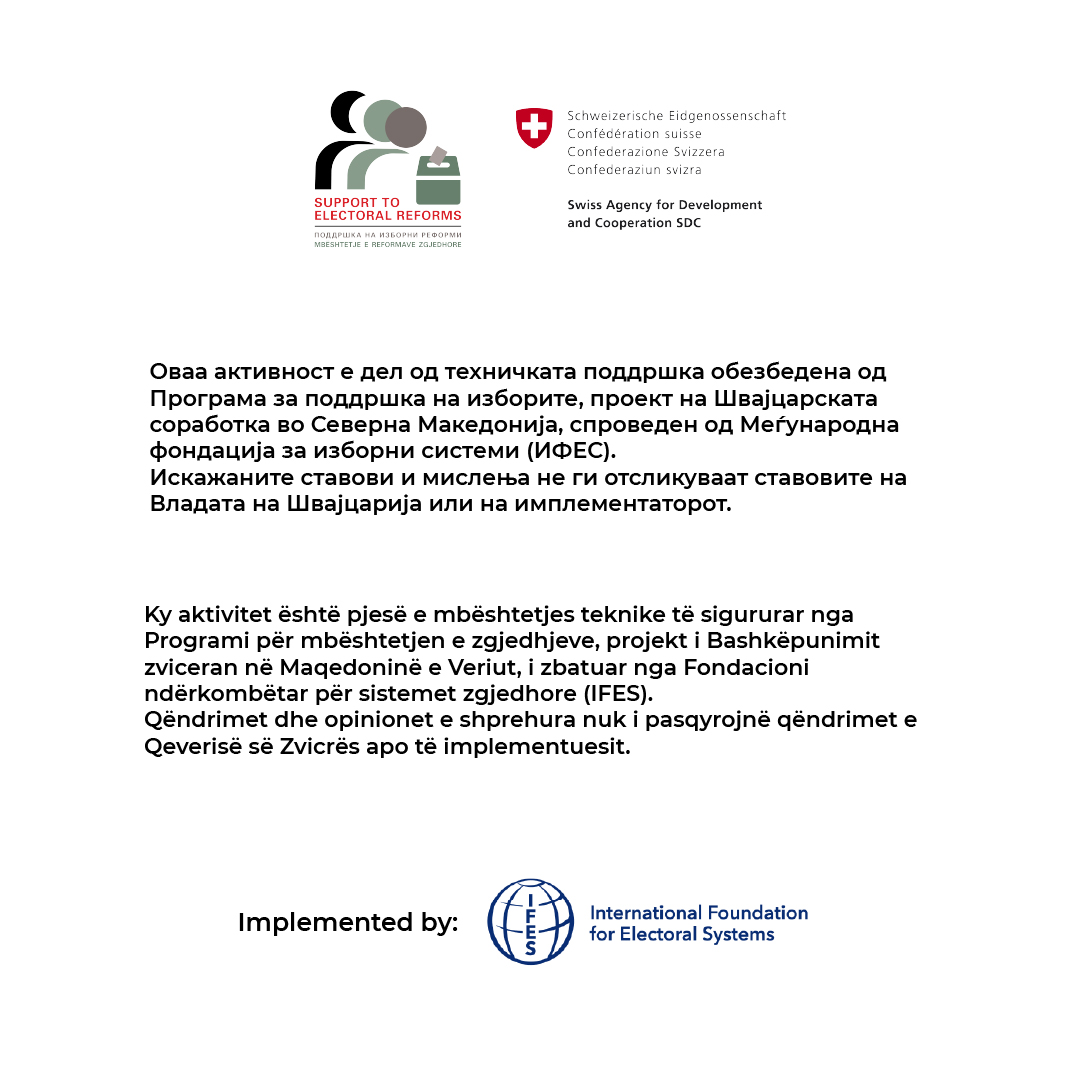

Verbal attacks like “Go make stew instead of explaining!” or “Stop talking and come to bed!” are experiences almost every female politician in North Macedonia has endured. This type of hate reveals a serious societal issue: violence against women in politics, which directly undermines democracy.
Violence against women in politics is a severe threat to democracy, gender equality, and social progress. Silencing and intimidating women discourages their active participation in political life, leading to decision-making that fails to reflect society’s diversity and real needs. This deepens the gender inequality gap and reinforces the perception that women are less welcome and valued in leadership roles.
Moreover, tolerating such violence sets a dangerous precedent, normalizing abusive behavior in other sectors and fostering a culture of violence and misogyny that undermines social cohesion and the values of fairness and inclusiveness.

Alarming Data on Violence Against Female Politicians
Violence against women in politics is violence against democracy! There is no excuse — we join the 16 Days of Activism to combat violence against women.
- Over 26% of women believe the violence they experienced wasn’t severe enough to report, while 43% say incidents are most common during campaigns and 15% during public party events.
- Despite their crucial role as agents of change, many female politicians in North Macedonia face various forms of violence that hinder their motivation and participation.
- Although the country has aligned its legislation with the Istanbul Convention, implementing these measures remains a challenge.
This highlights the urgent need for increased public awareness, institutional support, and strong political will to eradicate this phenomenon. To combat violence against women in politics, the Macedonian Women’s Lobby has developed a Code of Conduct with the support of the Swiss Government’s Electoral Reforms Support Program, implemented by the International Foundation for Electoral Systems (IFES).
So far, 13 political parties have signed this document, committing to countering violence, supporting women, sanctioning perpetrators, and promoting women’s roles in politics.
65% of Female Politicians in Macedonia Have Experienced Some Form of Violence While Fulfilling Party Functions
Violence prevents 51% of the country’s human capital from participating in political life. Women in politics and electoral processes are discouraged from contributing and making their voices heard.
- The government has only three women among its 23 positions.
- Parliament includes only 43 women out of 120 members.
- There are just two female mayors among 80 municipalities and the City of Skopje.
These figures highlight how marginalized women are in political life, partly due to the violence they face. “Violence against women, both in and outside politics, unfortunately, remains prevalent in the Republic of Macedonia. Whether through social media or verbal abuse, most women do not report it, but they should. No one should endure violence in a developed 21st-century society,” says Ljupcho Prendzov from VMRO-DPMNE.
Fact: 62% of Female Politicians Chose Not to Report Incidents Due to Fear or Lack of Trust in Institutions
Female politicians emphasize the need to strengthen online violence laws, establish independent monitoring bodies for electoral processes, and launch campaigns to raise public awareness.
“My message to women in politics is not to fear verbal abuse. They have vision and confidence. When I faced violence as a parliamentary candidate, I didn’t remain silent. Together, we are stronger,” says Dijana Toska from the Democratic Union for Integration (DUI).
Ajsel Sejfula from the Movement of Turks encourages all women to report any form of violence. “Let’s create a world where every woman can live freely and with dignity. Your voice and life matter,” she adds.
Fact: 47% of Women Lost Political Motivation or Left Politics Due to Violence
Jovanka Trenchevska from SDSM urges women to be vocal, courageous, and to report every act of violence. “Women’s solidarity is key. As women in Parliament, we must initiate campaigns to prevent violence against women,” she adds.
According to Sadik Sulejmani from the Alliance for Albanians, women are the pillars of our society. They must be supported and encouraged to continue contributing to a more advanced European Macedonia.
“Violence against women in politics is a systemic issue that disrupts the democratic process and stifles women’s voices. This is not just a fight for women but for a better, more equal, and developed Macedonia. Through solidarity, encouragement, and institutional support, we can build a society where every woman is protected and can fulfill her role without fear,” Sulejmani concludes.
Conclusion
Violence against women in politics is a grave threat to democracy and societal development. For the fight to succeed, it is crucial to foster solidarity among women from all political parties, strengthen legislation, and raise public awareness.
As Hillary Clinton once said: “Women are the world’s most underused resource.” It is time to unite and harness this strength for a better future. There is no excuse for violence against women in politics and elections!
The data in this report is sourced from the Assessment of Violence Against Women in Political Parties.
Проценка на насилството врз жените во политичките партии


